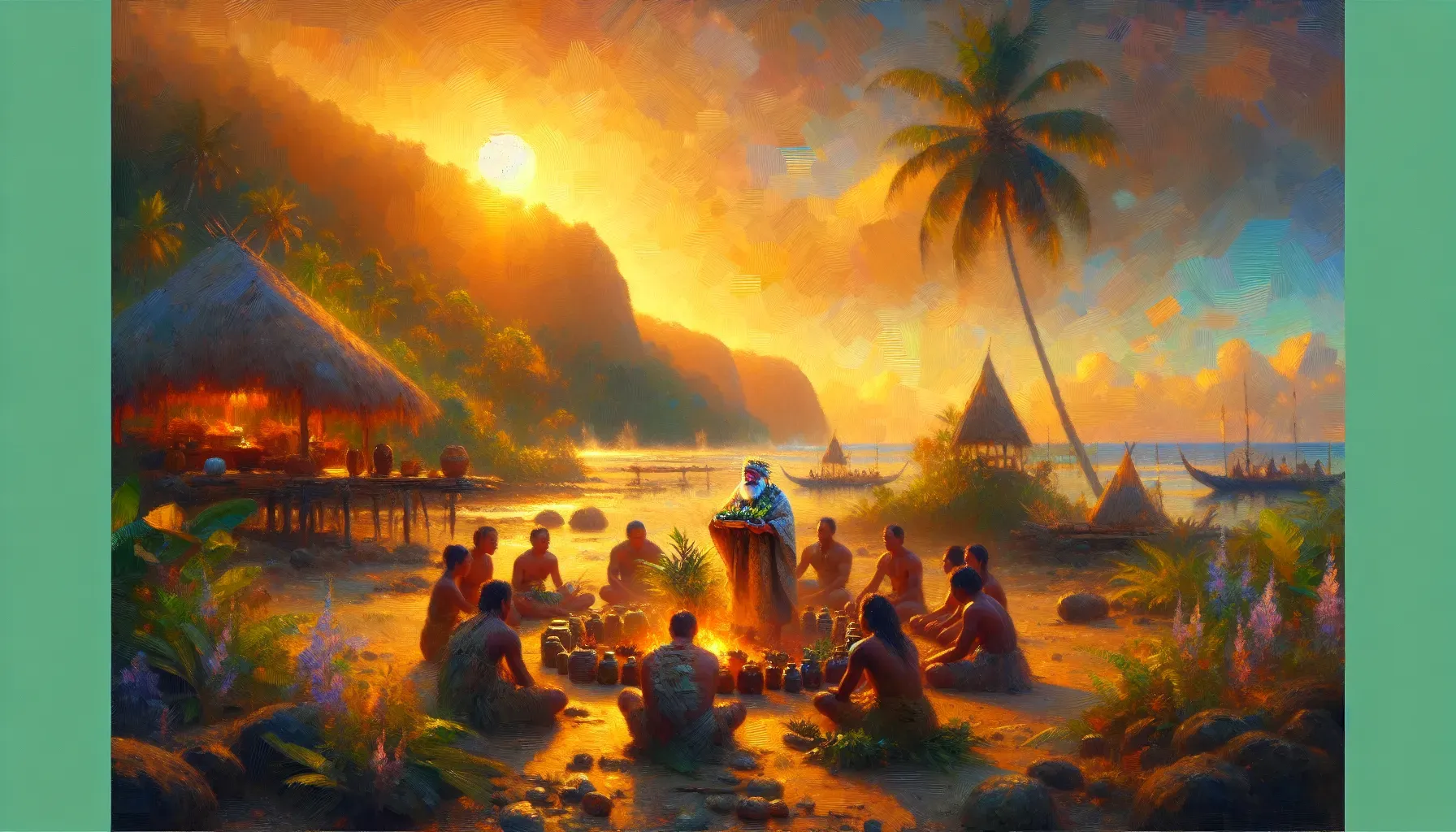Pacific Island Paradigm: Infusing Indigenous Wisdom into Holistic Healing Practices

The Pacific Islands are home to ancient traditions and cultural practices that have sustained generations through a deep understanding of holistic well-being. The integration of indigenous wisdom into modern holistic healing practices presents a wealth of opportunities for individuals seeking natural, sustainable, and culturally grounded approaches to health and wellness.
Honoring Ancestral Insights in Holistic Healing
The traditional healing rituals and remedies of Pacific Island communities offer valuable insights into maintaining overall well-being. From massage techniques to herbal remedies, these practices have been passed down through generations, embodying a profound connection to nature and spirituality.
What are traditional healing rituals?
Massage holds a prominent place in traditional Pacific Island healing practices. The use of local oils and rhythmic techniques not only soothes the body but also nurtures the spirit. Techniques such as "lomi lomi" from Hawaii and "fofo" from Samoa emphasize the interconnectedness of physical and spiritual wellness, promoting relaxation and revitalization.
Related Article: Supercharge Your Productivity with Healthy Habits
Embracing traditional massage techniques
Pacific Islanders have long relied on the medicinal properties of indigenous plants for various health concerns. Plants like kava, noni, and turmeric have been central to traditional healing, offering remedies for ailments ranging from inflammation to emotional well-being. Understanding the preparation and application of these remedies can provide a natural alternative to modern pharmaceuticals, aligning with the ethos of holistic healing.
The diverse flora of the Pacific Islands holds an invaluable reservoir of botanical knowledge that continues to inspire modern wellness practices. Preserving this biodiversity not only safeguards natural resources but also empowers communities by recognizing the significance of their indigenous botanical heritage.
How to harness herbal remedies effectively
The rich tapestry of indigenous flora across the Pacific Islands has facilitated the development of traditional plant-based medicines. Through sustainable harvesting practices and responsible cultivation, these medicinal plants offer a holistic approach to addressing various health concerns. By understanding the properties of endemic plants, individuals can explore alternative avenues for promoting health while contributing to environmental conservation.
Related Article: 10 Easy Ways to Incorporate Wellness into Your Busy Schedule
Preserving Biodiversity and Botanical Knowledge
The integration of indigenous botanical knowledge necessitates ethical sourcing and cultivation practices to ensure the preservation of plant species. Community-driven initiatives that promote sustainable harvesting methods and support local cultivation efforts not only honor traditional wisdom but also foster eco-friendly approaches to wellness. This emphasis on sustainability aligns with Peppino Blog's commitment to promoting conscientious living through its health and wellness content.
Exploring native plant medicine benefits
Incorporating customary practices from Pacific Island cultures into contemporary wellness approaches offers a unique opportunity to broaden holistic healing modalities, emphasizing cultural sensitivity and community relevance.
Traditional Pacific Island healing modalities often emphasize a holistic approach that integrates mind, body, and spirit. Practices such as meditation, storytelling, and energy balancing demonstrate an integrative perspective on well-being that resonates with modern holistic philosophies. By recognizing the interconnectedness of these elements, individuals can cultivate a holistic approach to their wellness journey.
Related Article: Mental Wellness Revolution: Modern Approaches to Stress Management
What are ethical sourcing practices?
Wellness ceremonies embedded in Pacific Island traditions provide a sense of communal connection as well as individual rejuvenation. Whether it's the Tahitian "tapa-making" process or Fijian "kava ceremonies," these rituals invite participants to engage in age-old practices that celebrate unity, harmony, and vitality. By honoring these customs within contemporary settings, communities can strengthen their bonds while nurturing individual well-being.
Culturally Grounded Therapies in Wellness Approaches
Engaging local communities in health and wellness initiatives is essential for promoting meaningful partnerships and sustaining collective well-being through reciprocal learning and support mechanisms.
How to embrace mind-body-spirit alignment?
Empowering local communities to spearhead health programs fosters a sense of ownership and cultural relevance within wellness initiatives. Collaborative efforts that integrate traditional knowledge with modern healthcare practices stimulate community involvement while promoting health equity a cornerstone of Peppino Blog's advocacy for inclusive wellness solutions.
By integrating traditional wisdom into educational resources, communities can elevate the visibility and significance of indigenous health practices. Platforms that champion ancestral insights alongside contemporary knowledge not only amplify cultural heritage but also bolster awareness regarding holistic wellness among broader audiences further aligning with Peppino Blog's commitment to promoting diverse perspectives within the health and wellness landscape.
Engaging in ritual wellness ceremonies
Peppino Blog is delighted to spotlight the convergence of indigenous wisdom with contemporary wellness approaches in bridging cultural diversity with profound insights into holistic well-being. By recognizing, honoring, and integrating ancestral insights from Pacific Island communities, individuals can embark on a transformative journey towards sustainability, mindfulness, and resilience in their pursuit of optimal health.
Frequently Asked Questions
The Pacific Islands feature various traditional healing rituals, including massage techniques and herbal remedies. Practices like "lomi lomi" from Hawaii and "fofo" from Samoa emphasize the connection between physical and spiritual wellness, using local oils and rhythmic movements to promote relaxation and rejuvenation.
Indigenous plants play a crucial role in holistic health within Pacific Island cultures. Plants such as kava, noni, and turmeric are used for their medicinal properties, addressing issues from inflammation to emotional well-being, offering natural alternatives to modern pharmaceuticals while aligning with holistic healing principles.
Integrating traditional wisdom into modern health education involves elevating the visibility of indigenous practices alongside contemporary knowledge. This approach fosters cultural heritage appreciation and enhances awareness of holistic wellness, empowering communities to embrace their ancestral insights while promoting inclusive health solutions.
Check Out These Related Articles

Triumphing Against the Odds: Unsung Heroes in the Health and Wellness Sphere

The Road to Holistic Wellness: The Insights I Wish I Had as a Beginner

Mindfulness Globetrotting: Diverse Paths to Inner Peace and Mental Clarity
